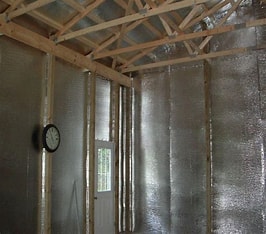In an era marked by environmental consciousness and the pursuit of energy efficiency, insulation grants have emerged as a valuable tool to promote sustainable practices and enhance the energy performance of homes and buildings. These grants, often part of energy-saving programs, provide financial support to individuals and organizations aiming to invest in insulation and improve energy efficiency. In this comprehensive article, we will explore insulation grants, their significance, eligibility criteria, the application process, and the benefits they offer for achieving a more sustainable future.
- The Significance of Insulation Grants
Insulation grants are an integral component of energy-saving programs for several reasons:
- Promoting Energy Efficiency: One of the primary goals of insulation grants is to promote energy efficiency. Proper insulation reduces energy consumption, lowers utility bills, and lessens the environmental impact associated with excessive energy use.
- Addressing Climate Change: As part of broader climate change mitigation efforts, insulation grants aim to reduce greenhouse gas emissions by encouraging more efficient energy use in residential and commercial buildings.
- Enhancing Comfort: Effective insulation not only reduces energy costs but also improves indoor comfort. Grants enable homeowners and organizations to create more comfortable living and working environments.
- Job Creation: Energy-saving programs that include insulation grants often stimulate job creation in the construction and insulation industries, providing economic benefits.
- Preserving Resources: Energy efficiency helps conserve natural resources and reduces the need for new power plants, thus lessening the strain on the environment.
- Eligibility Criteria
Eligibility for insulation grants can vary depending on the program, funding source, and location. Common eligibility criteria include:
- Residential or Commercial Status: Grants may be available for both residential and commercial properties.
- Income Limits: Some programs target low-income households, while others are open to a broader range of income levels.
- Property Type: Grants are typically available for existing properties, but eligibility for new construction projects may also be possible.
- Location: Certain programs are region-specific or tied to local utility providers.
- Age of Property: Grants may be contingent on the age of the property, with older homes often receiving priority.
- The Application Process
The application process for insulation grants usually involves the following steps:
- Research: Identify available insulation grant programs, considering factors like eligibility, funding amounts, and deadlines.
- Assessment: Determine your insulation needs. Some programs may require an energy audit or assessment to assess the current energy performance of your property.
- Application Submission: Complete the application form for the chosen grant program. This may involve providing documentation, such as proof of income or property ownership.
- Review: Grant providers review applications to ensure that they meet the specified criteria.
- Approval and Award: If your application is approved, you will receive the grant award, which can be used to cover the costs of insulation materials and installation.
- Insulation Installation: Proceed with the insulation installation, adhering to program guidelines and using approved materials and contractors.
- Post-Installation Assessment: Some programs may require a post-installation inspection to confirm that the work has been completed according to standards.
- Benefits of Insulation Grants
Insulation grants offer numerous benefits to recipients, including:
- Financial Assistance: Grants provide financial support, reducing the upfront costs associated with insulation projects.
- Energy Savings: Improved insulation leads to reduced energy consumption, lower utility bills, and long-term energy savings.
- Environmental Impact: By reducing energy usage, insulation grants contribute to environmental sustainability and reduce greenhouse gas emissions.
- Comfort and Health: Enhanced insulation results in improved indoor comfort, reducing temperature fluctuations and drafts. This can positively impact occupants’ health and well-being.
- Job Creation: Grants stimulate job creation in the construction and insulation industries, contributing to local economies.
- Property Value: Energy-efficient properties often have higher resale values, making insulation investments a sound financial decision.
Insulation grants are a vital component of energy-saving programs, promoting energy efficiency, sustainability, and economic growth. They provide financial assistance to homeowners, businesses, and organizations, enabling them to invest in insulation and reduce energy consumption. By offering financial incentives and fostering a commitment to sustainability, insulation grants play a pivotal role in the pursuit of a more energy-efficient and environmentally responsible future.

